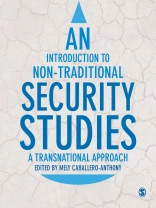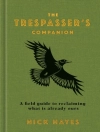With the end of the Cold War, threats to national security have become increasingly non-military in nature. Issues such as climate change, resource scarcity, infectious diseases, natural disasters, irregular migration, drug trafficking, information security and transnational crime have come to the forefront. This book provides a comprehensive introduction to Non-Traditional Security concepts. It does so by:
- Covering contemporary security issues in depth
- Bringing together chapters written by experts in each area
- Guiding you towards additional material for your essays and exams through further reading lists
- Giving detailed explanations of key concepts
- Testing your understanding through end-of-chapter questions
Edited by a leading figure in the field, this is an authoritative guide to the key concepts that you′ll encounter throughout your non-traditional, and environmental, security studies courses.
Table of Content
PART A: Concepts
CHAPTER 1: Understanding Non-traditional Security – Mely Caballero-Anthony
CHAPTER 2: On Security – Mely Caballero-Anthony
CHAPTER 3: Actors and Stakeholders – Alistair D.B. Cook
PART B: Issues
CHAPTER 4: Conflict and Community Security – Mely Caballero-Anthony
CHAPTER 5: Poverty and Economic Security – Bob S. Hadiwinata
CHAPTER 6: Environmental Security – J. Jackson Ewing
CHAPTER 7: Food Security – Paul Teng and Jonatan Lassa
CHAPTER 8: Energy Security – Zha Daojiong
CHAPTER 9: Water Security – Marcus Du Bois King
CHAPTER 10: Health Security – Simon Rushton
CHAPTER 11: Migration and Movements of People – Melissa Curley
CHAPTER 12: Transnational Crime – David Capie
About the author
Mely Caballero-Anthony is Associate Professor and Head of the Centre for Non-Traditional Security (NTS) Studies at the S. Rajaratnam School of International Studies (RSIS), Nanyang Technological University, Singapore. Prof. Anthony’s research interests include regionalism and regional security in the Asia-Pacific, multilateral security cooperation, politics and international relations in ASEAN, conflict prevention and management, as well as human security. She has published extensively in peer-reviewed journals on a broad range of security issues in the Asia-Pacific. Her latest publications, both single-authored and co-edited, include: Community Security: Human Security at 21, (Contemporary Politics, 2015) Understanding ASEAN Centrality’, (Pacific Review, 2014), ‘Human Security in ASEAN: 20 Years On’, (Asian Journal of Peacebuilding, 2014), Non-Traditional Security in Asia: Issues, Challenges and Framework for Action, (ISEAS, 2013). She previously served as the Director of External Relations at the ASEAN Secretariat and currently serves in the UN Secretary-General’s Advisory Board on Disarmament Matters and Security. She is also Secretary-General of the Consortium of Non-Traditional Security Studies in Asia (NTS-Asia) and is a member of the World Economic Forum (WEF) Global Agenda Council on Conflict Prevention












